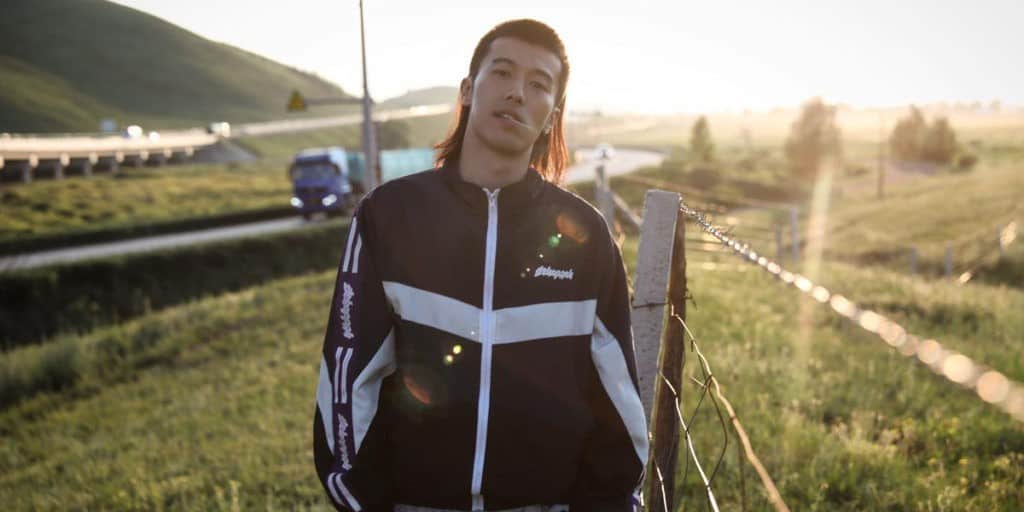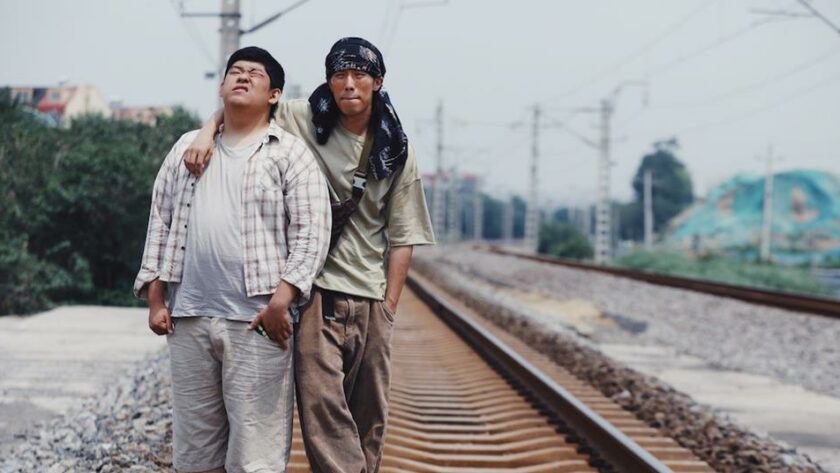BFI’s London Film Festival is in town! The FilmSoc Blog is back for the 64th edition of one of Europe’s largest film festivals, delivering a first look at the hits and misses of the 2020-21 season.
Editor-in-chief Tomi Haffety evaluates a debut film about film students adrift in Beijing.
Emerging director Wei Shujun presents his feature debut, a slow-burning road movie loosely based on his own experiences of youth in Beijing. Financed by Alibaba, showing a significant move in increased financial support for independent films, Striding into the Wind is the story of two drifters caught up in a time of change, both in society and their own lives. One of the lesser known showings of London Film Festival, this feature was screened as part of the ‘Create’ strand. While it is a clear example of attempting to explore creativity in unique and unchartered ways, the lifeless storyline means that the film ultimately falls short of being a creative masterpiece.
Kun is a drifter. Studying at (but mostly flunking) film school, he lacks inspiration for the future and instead causes trouble in the streets of Beijing. Failing his driving test after going rogue and splitting from the status quo, a consistent theme throughout the feature, Kun sets out to buy a beaten up and forgotten Jeep. Trapped in the buzzing metropolis of the rapidly growing city, he is already tired of following the rules and norms of adult life and is hopeful that the change of scenery in Mongolia will stir up a new sense of hedonism. Along with his equally adrift schoolfriend Tong, they work on the set of a low budget film as sound assistants with the hope they will somehow join the crew on their exhilarating trip to Mongolia. Based loosely on his own experience of coming of age in China’s rapidly changing economy, Shujun captures the rebellious anti-Confucian attitude of a young man in a turmoil of identity.
Like its protagonist, Striding in the Wind lacks direction. The first half of the film we are led through Kun’s daily routine of driving in his Jeep with no destination, messing about with his friends and freeloading off his girlfriend, who seems to be the only character with any substance. All mullet and no aspirations, Kun’s character’s disillusionment with Beijing is not explored deeply enough for the film to get away with simply following him around. Moments of subtle comedy and dramatic wide shots of Beijing and the surrounding landscapes lend refreshing stimulation to this mostly empty depiction of China’s truant generation X.

This road movie earns its place in the genre with stunning framings of northern China and inner Mongolia’s scenery. Symbolising the separation between traditional Chinese society and the embittered youth, shots of the crumbling Jeep driving through the colossal hills give the film a false sense of depth. That said, Shujun’s incorporation of Chinese hip hop and references to illustrious Asian film directors such as Wong Kar Wai prove that Kun is still inspired by the art he sees around him. It is through a lack of support, not his own focus, that is hindering him from thriving in the adult world.
Picking up toward the end, the pace throughout the film seems an allegory for the path of our two drifters. It only seems to change when they finally go on the road trip that everyone has been waiting for. The disappointment the climactic road trip brings the viewer is akin to that of Kun and Tong. Reaching inner Mongolia is, for the men, as underwhelming as spending four years in film school just to have no prospects after graduation. However, one breath-taking scene stands out, when Shujun uses the Jeep’s headlights with masterful tact to illuminate an awkward love-making scene in an abandoned Mongolian field. But there are not enough scenes of this calibre to keep you hooked for two and a half hours.
For all its slow-paced monotony, Striding in the Wind accurately depicts coming of age on the edge of a functioning society. Fractured family relationships and the lack of trust in the modern education system are core problems of our time and Shujun has alluded to this through his debut feature. But with a paucity of striking scenes and significant dialogue, the film ends up feeling two-dimensional.




